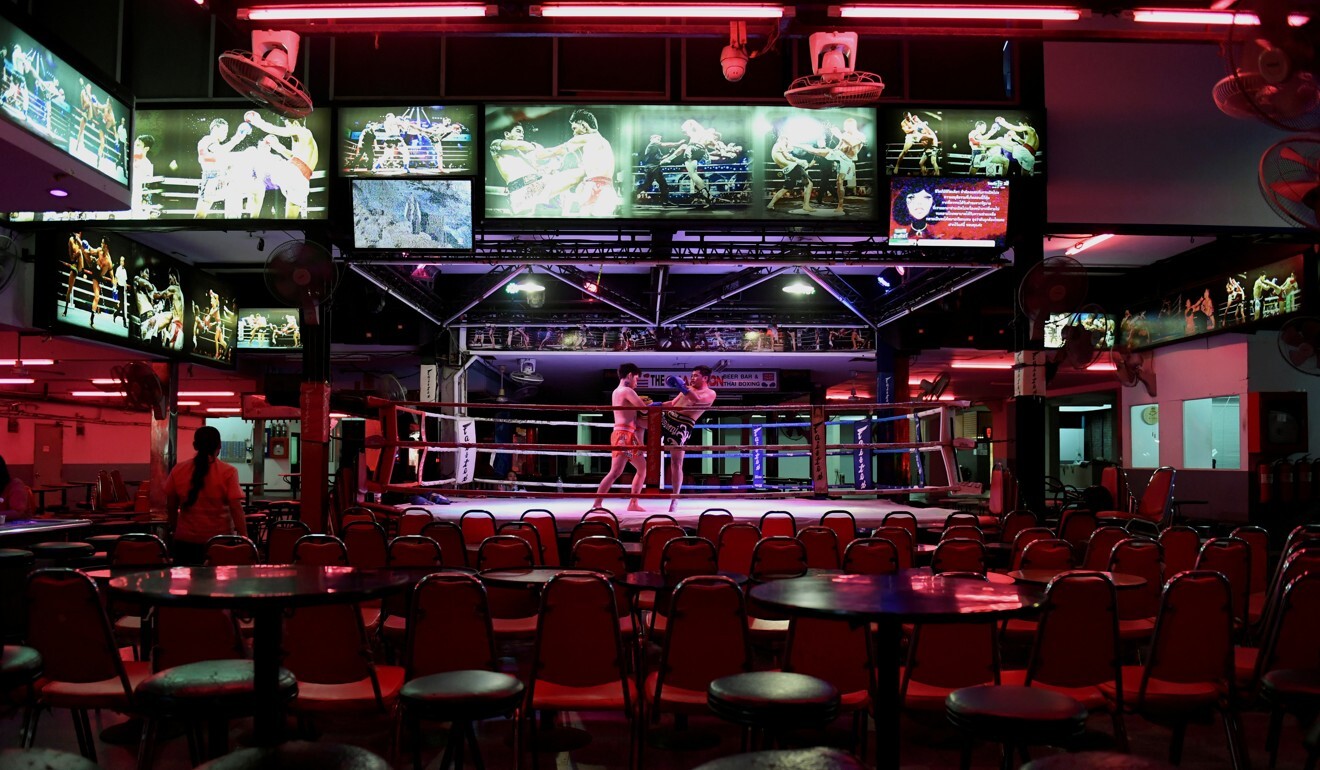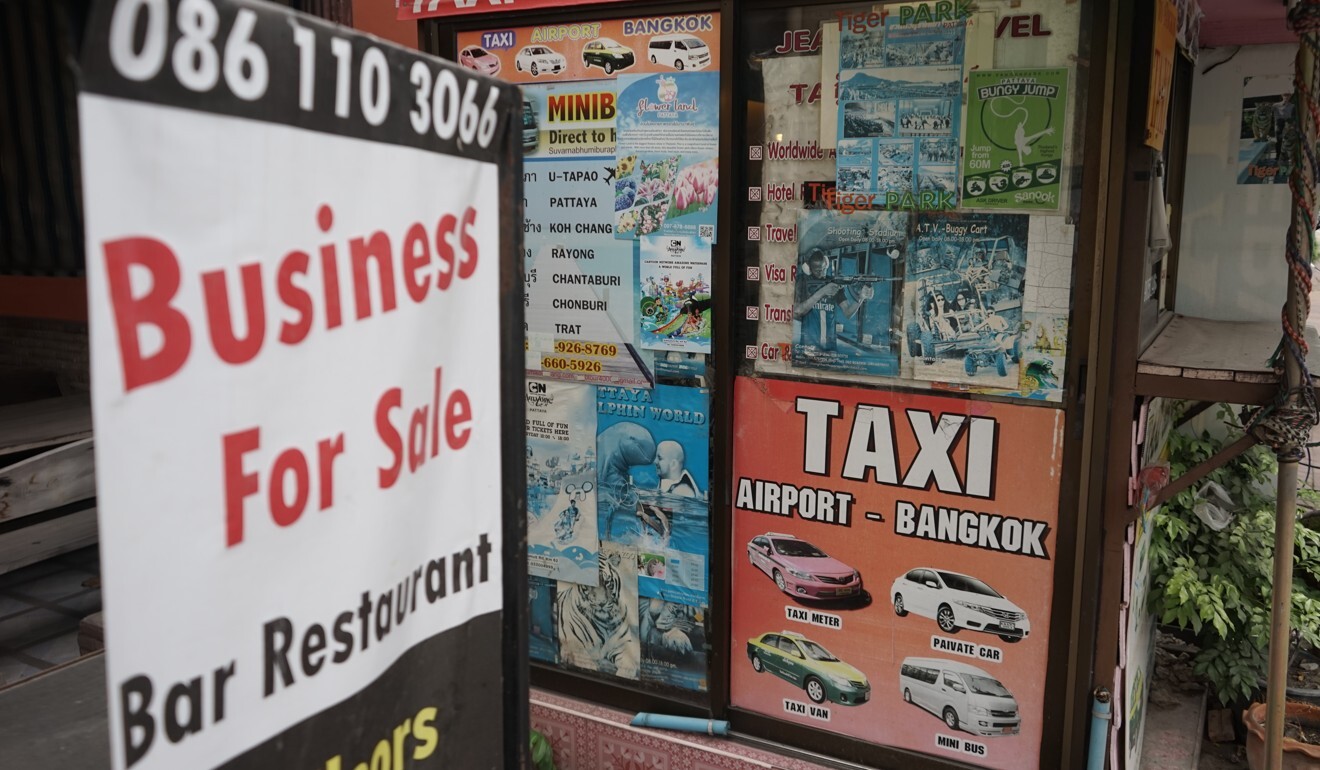
No to nightlife, yes to vaccinations: can Thailand’s Pattaya rebrand and reopen?
- The resort city has launched a campaign to inoculate much of its population in a bid to offer quarantine-free travel to foreign tourists
- It is also looking to pivot from its reputation for go-go bars and sex work to more upmarket and family-friendly businesses
But the combination of ongoing travel restrictions, a deadly new wave of the pandemic that has killed more than 1,000 people, and a slow vaccine roll-out have piled bad news upon bad news for Thailand’s tourist hotspots.
From Bangkok to Chiang Mai, Hua Hin to Pattaya, bars and restaurants have been closed and visitors have stayed away as near-lockdown conditions extend into an eighth week.
Vaccination drives stutter as new Covid-19 waves hit Vietnam, Thailand
“Around 80 per cent of tourist businesses have gone in Pattaya,” said Chairat, who is also a regional representative for the Thai Hotels Association.
It’s a statistic that can be seen all too clearly along the kilometres of restaurants, bars, massage parlours and holiday houses that once seethed with visitors and now bear “For Sale” signs.
In a desperate bid to mount a comeback, Pattaya has launched a campaign to vaccinate much of its population, which in the coming months would allow it to reopen to foreign tourists without imposing quarantine restrictions.
“If we can inoculate 15,000 people a day we are on track to open up the city by the fourth quarter of this year,” mayor Sontaya Kunplome told reporters earlier this week.

Much of Thailand is looking on with envy at the “Phuket Sandbox” project, which the resort island is set to launch on July 1. The scheme will allow vaccinated visitors to stay on the island for a week, without having to quarantine, before travelling onwards across Thailand.
The government of Phuket has said it is close to vaccinating 70 per cent of its residents, after rushing ahead of the rest of the country with its own scheme to procure doses.
But Pattaya’s prospects are more complicated, even if it can get its hands on a sufficient supply of vaccines.
Thailand’s gold panners blame Mekong dams in China, Laos as fortune dries up
This means Pattaya – which in 2019 welcomed 2.7 million Chinese visitors, many on package tours – must rely on Europeans, Americans and Russians who have been vaccinated and are desperate to travel after prolonged periods at home.
The reopening may also mean pivoting away from Pattaya’s reputation for nightlife, going from go-go bars and sex work to something more upmarket and family friendly.
“The government wants high spenders who are looking for quality tourism. We need to build a new ecosystem for that,” said Chairat from the Thai Hotels Association, adding that this would involve upgrades to infrastructure and transport as well as higher-end businesses from wellness to the arts.

But before vaccinated tourists can head to Thailand for a holiday, the kingdom has to inoculate its own people. The programme has been a slow and convoluted process, with critics accusing the government of bungling vaccine procurement and roll-out while the virus spreads.
Just 1.2 million of Thailand’s population of 70 million have received two doses of the vaccine, but Bangkok has pledged to drastically ramp up inoculations from June 7.
Pattaya, meanwhile, is racing to ensure its allocation of vaccines is given to locals in tourist-facing areas.
Frontline workers are first in line, from the orange-vested “motorsai” taxi drivers who cluster on most street corners to workers in spas and hotels.
How Leicester City and Thailand’s King Power showed the English Premier League foreign ownership can work
“Tourists will feel a lot better if we are all vaccinated when they arrive,” said motorsai driver Duangporn Klaisombon, as she prepared to get her first jab of the Chinese-made Sinovac vaccine.
But there are also those who fear this will be another false dawn.
Tour operator Chawalit Daomukda used to focus on independently travelling Chinese visitors, but even if vaccines are rushed out internationally, he fears Pattaya’s hard-hit businesses will have to survive more lean months before travellers return.
That leaves him dependent on Thai tourists, who have been kept at home by the latest outbreak.
“I have virtually no income. The bank is letting us defer our payments, but I’m not sure for how much longer,” Chawalit said.
“By the end of the year, if it stays like this, I’ll need to close my restaurant and sell my boats. It’s so grim.”
